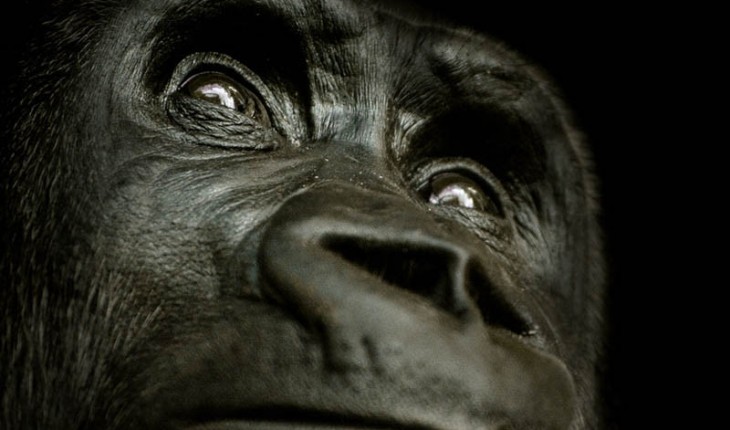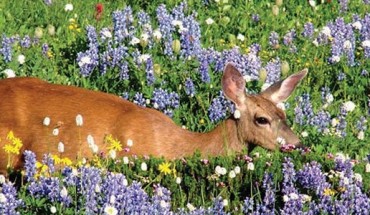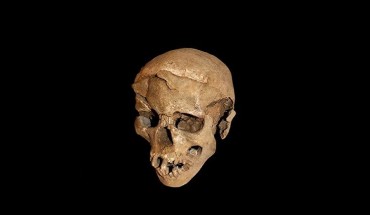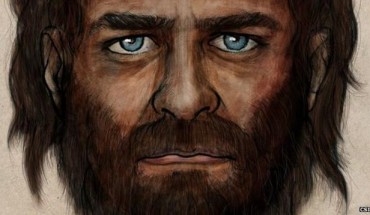By Sarea Reese
2.

Photograph by MILA ZINKOVA
3.

Photograph by DAVID GUNTER
Gorillas are the largest extant species of primates. They are ground-dwelling, predominantly herbivorous apes that inhabit the forests of central Africa. [Source: Wikipedia]
4.

Photograph by DAVID AND BECKY
5.

Photograph by WEESAM2010
The DNA of gorillas is highly similar to that of a human, from 95-99% depending on what is counted. They are the next closest living relatives to humans after the two chimpanzee species, with all of the Hominidae having diverged from a common ancestor about 7 million years ago. [Source:Wikipedia]
6.

Photograph by BRIAN AUER
7.

Photograph by AXEL FOLEY
There are now thought to be over 100,000 western lowland gorillas in the wild, with 4,000 in zoos; eastern lowland gorillas have a population of 4,000 in the wild and 24 in zoos. Mountain Gorillas are the most severely endangered, with an estimated population of about 620 left in the wild and none in zoos. [Source: Wikipedia]
8.

Photograph by SMUDGE350
9.

Photograph by MIDLAND RED
Gorillas move around by knuckle-walking, although they sometimes walk bipedally for short distances while carrying food or in defensive situations. Knuckle-walking is a form of quadrupedal walking in which the forelimbs hold the fingers in a partially flexed posture that allows body weight to press down on the ground through the knuckles. Gorillas and chimpanzees use this style of locomotion as do anteaters and platypuses. [Source:Wikipedia]
10.

Photograph by SMITHSONIAN’S NATIONAL ZOO
11.

Photograph by JAMES GAITHER
Adult males range in height 1.65–1.75 metres (5 ft 5 in–5 ft 9 in), and in weight 140–200 kg (310–440 lb). Adult females are often half the size of, averaging about 1.4 metres (4 ft 7 in) tall and 100 kg (220 lb). [Source:Wikipedia]
12.

Photograph by FELIX S.
13.

Photograph by SCOTT HANKO
14.

Photograph by NATALIE MANUEL
Gorilla infants are vulnerable and dependant and thus mothers, their primary caregivers, are important to their survival. Gorilla mothers invest years caring for their offspring. Male gorillas are not active in caring for the young. However they do play a role in socializing them as they will associate with older infants and juveniles [Source: Wikipedia]
15.

Photograph by PIERRE FIDENCI
16.

Photograph by RICHARD ASHURST
17.

Photograph by JAMES GAITHER
A group of gorillas living together is called a “troop.” There can be 5 to 30 gorillas in one troop, led by a strong, experienced male known as a “silverback.” His job is a big one. He is responsible for the safety and well being of the members of his troop. The silverback makes all the decisions, such as where the troop will travel for food each day, when they will stop to eat or rest, and where they will spend the night. [Source: San Diego Zoo]
18.

Photograph by TANCREAD
19.

Photograph by ANDY COE
20.

Photograph by SAFARI PARTNERS
Females mature at 10–12 years (earlier in captivity); males at 11–13 years. Lifespan is between 30–50 years, although there have been exceptions. [Source: Wikipedia]
21.

Photograph by HECTOR16
22.

Photograph by HAUKESTEINBERG.COM
23.

Photograph by TOM2001
24.

Photograph by SWANTHO
25.

Photograph by MARK MCLAUGHLIN




